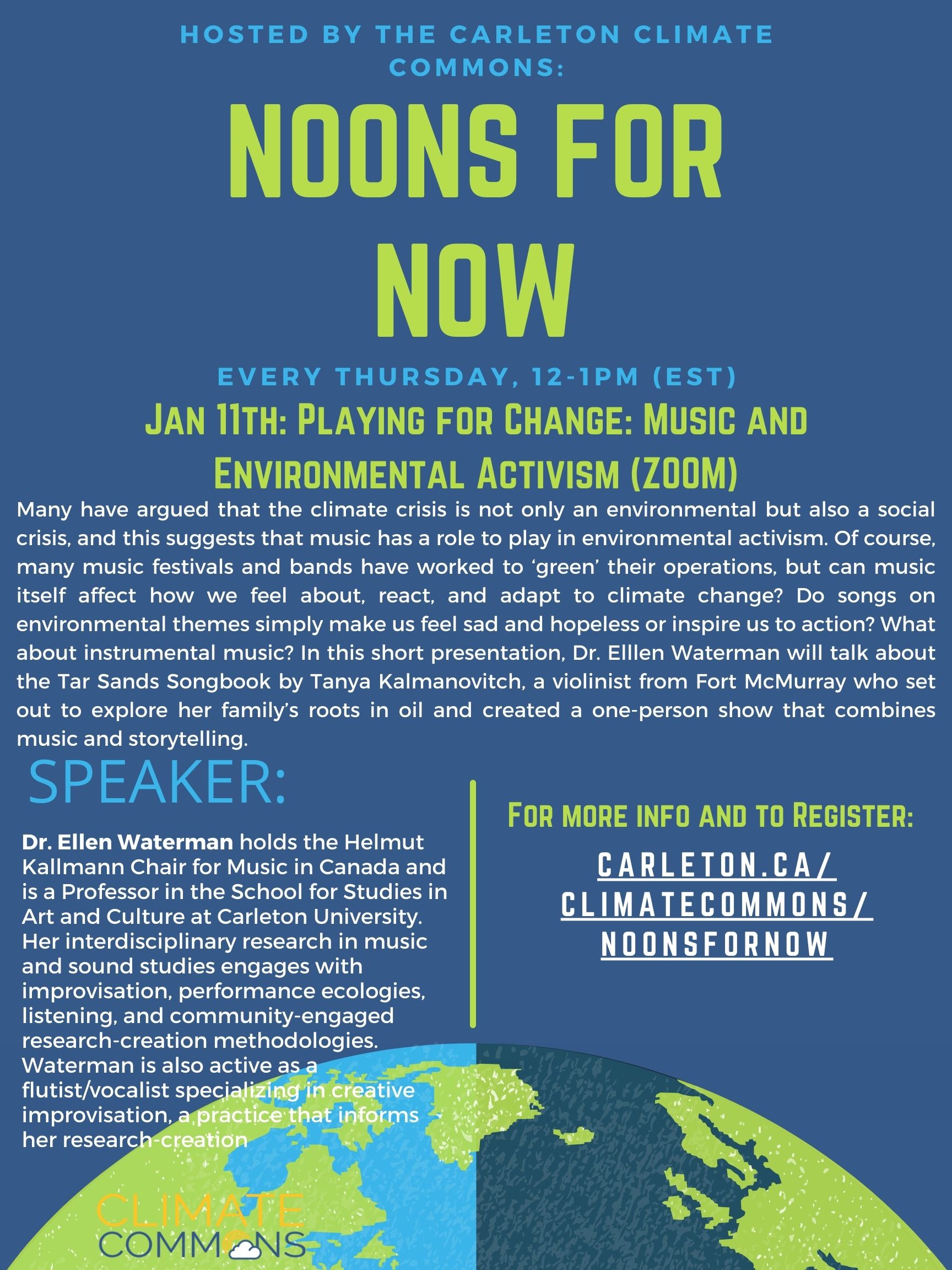
Many have argued that the climate crisis is not only an environmental but also a social crisis, and this suggests that music has a role to play in environmental activism. Of course, many music festivals and bands have worked to ‘green’ their operations, but can music itself affect how we feel about, react, and adapt to climate change? Do songs on environmental themes simply make us feel sad and hopeless or inspire us to action? What about instrumental music? In this short presentation, Dr. Ellen Waterman will talk about the Tar Sands Songbook by Tanya Kalmanovitch, a violinist from Fort McMurray who set out to explore her family’s roots in oil and created a one-person show that combines music and storytelling. She hopes that this example will give us a basis for asking questions about the relationship between the arts and climate change. You can also check out the Tar Sands Songbook at https://www.tarsandssongbook.com.
Speaker: Dr. Ellen Waterman holds the Helmut Kallmann Chair for Music in Canada and is a Professor in the School for Studies in Art and Culture at Carleton University. Her interdisciplinary research in music and sound studies engages with improvisation, performance ecologies, listening, and community-engaged research-creation methodologies. Waterman is also active as a flutist/vocalist specializing in creative improvisation, a practice that informs her research-creation. Her instructional score Bodily Listening in Place (2022), commissioned by New Adventures in Sound Art, explores an expanded concept of listening across different sensory modalities. Waterman’s books include three edited collections: Sonic Geography Imagined and Remembered, The Art of Immersive Soundscapes (with Pauline Minevich and James Harley), and Negotiated Moments: Improvisation, Sound, and Subjectivity (with Gillian Siddall). In 2021 Waterman founded the Research Centre for Music, Sound, and Society in Canada, dedicated to exploring the complex and diverse roles that music and sonic arts play in shaping Canadian society.
Actions
- Experiencing Live music
- Mindfulness practices
- Listen to more music
- Imagine worlds with music
- Play/make music
- Mix mediums with music
- Listen to a variety of radio stations
- Think about the ways that we listen and how we listen
- Consider all the senses as we are listening
- Consider the sounds around us as we are doing tasks that do not automatically acknowledge listening as priority
- Reflect on how sounds and listening can ground us in our bodies and in the present
Resource List
The following is a list of resources recommended by attendees at our event.
Ellen Waterman works:
Website – Links to performances, books, research, etc.
The Ecology of Experimental Music Performance in Canada
Books:
A Song to Save the Salish Sea: Musical Performance as Environmental Activism by Mark Pedelty
Hungry Listening: Resonant Theory for Indigenous Sound Studies by Dylan Robinson
Movements/Websites:
Music:
Tanya Kalmanovitch – Tar Sands Songbook and other projects
Retribution – Studio album by Tanya Tagaq
Ignorance – Studio album by The Weather Station
Common Ground – Album by Paul Winter
Become Ocean – Song by John Luther Adam